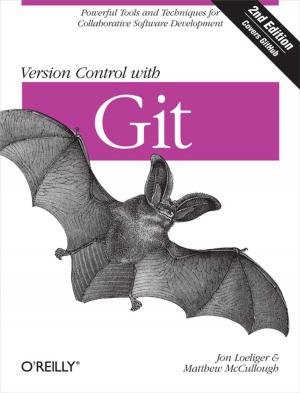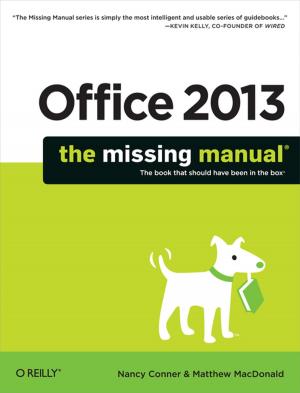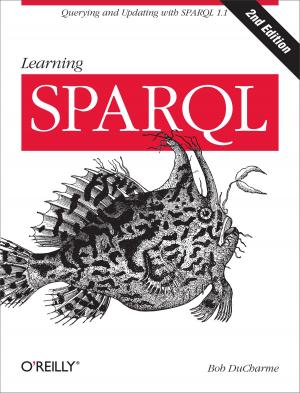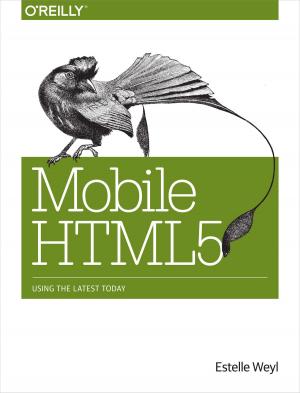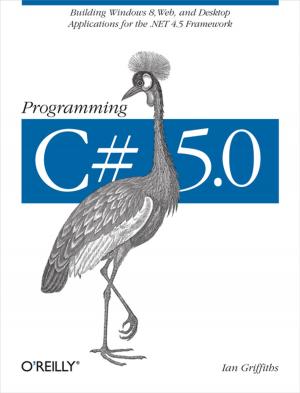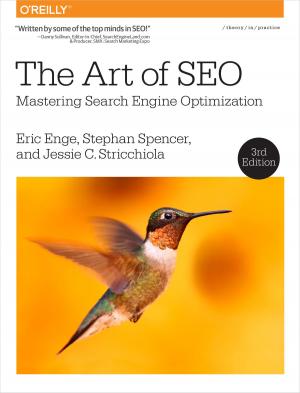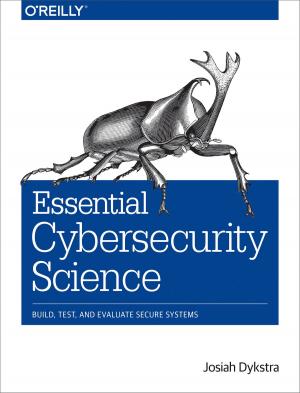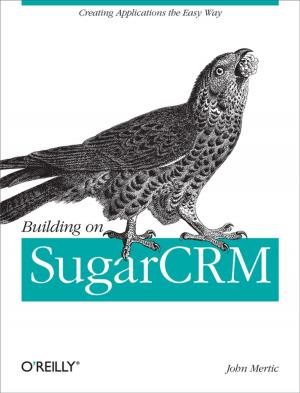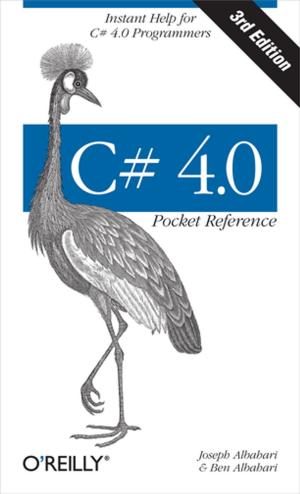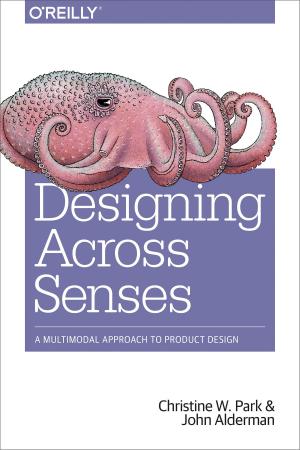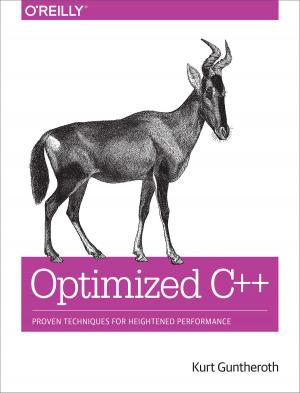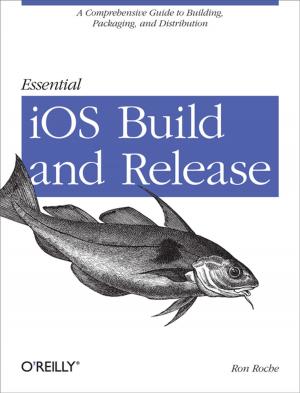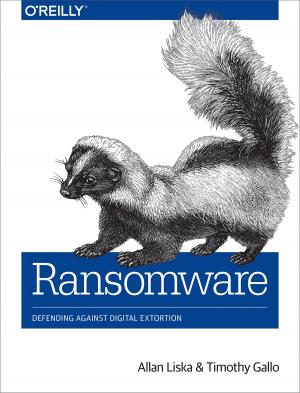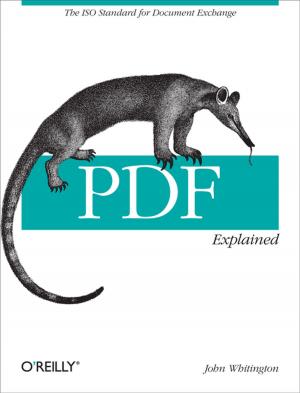| Author: | Steven Feuerstein, Charles Dye, John Beresniewicz | ISBN: | 9781449397722 |
| Publisher: | O'Reilly Media | Publication: | May 1, 1998 |
| Imprint: | O'Reilly Media | Language: | English |
| Author: | Steven Feuerstein, Charles Dye, John Beresniewicz |
| ISBN: | 9781449397722 |
| Publisher: | O'Reilly Media |
| Publication: | May 1, 1998 |
| Imprint: | O'Reilly Media |
| Language: | English |
Oracle is the most popular database management system in use today, and PL/SQL plays a pivotal role in current and projected Oracle products and applications. PL/SQL is a programming language providing procedural extensions to the SQL relational database language and to an ever-growing number of oracle development tools. originally a rather limited tool, PL/SQL became with Oracle7 a mature and effective language for developers. now, with the introduction of Oracle8, PL/SQL has taken the next step towards becoming a fully realized programming language providing sophisticated object-oriented capabilities. Steven Feuerstein'sOracle PL/SQL Programming is a comprehensive guide to building applications with PL/SQL. That book has become the bible for PL/SQL developers who have raved about its completeness, readability, and practicality.Built-in packages are collections of PL/SQL objects built by Oracle Corporation and stored directly in the Oracle database. The functionality of these packages is available from any programming environment that can call PL/SQL stored procedures, including Visual Basic, Oracle Developer/2000, Oracle Application Server (for web-based development), and, of course, the Oracle database itself. Built-in packages extend the capabilities and power of PL/SQL in many significant ways. for example:
- DBMS_SQL executes dynamically constructed SQL statements and PL/SQL blocks of code.
- DBMS_PIPE communicates between different Oracle sessions through a pipe in the RDBMS shared memory.
- DBMS_JOB submits and manages regularly scheduled jobs for execution inside the database.
- DBMS_LOB accesses and manipulates Oracle8's large objects (LOBs) from within PL/SQL programs.
- 1. Introduction
- Executing Dynamic SQL and PL/SQL
- Intersession Communication
- User Lock and Transaction Management
- Oracle Advanced Queuing
- Generating Output from PL/SQL Programs
- Defining an Application Profile
- Managing Large Objects
- Datatype Packages
- Miscellaneous Packages
- Managing Session Information
- Managing Server Resources
- Job Scheduling in the Database
- Snapshots
- Advanced Replication
- Conflict Resolution
- Deferred Transactions and Remote Procedure Calls
Oracle is the most popular database management system in use today, and PL/SQL plays a pivotal role in current and projected Oracle products and applications. PL/SQL is a programming language providing procedural extensions to the SQL relational database language and to an ever-growing number of oracle development tools. originally a rather limited tool, PL/SQL became with Oracle7 a mature and effective language for developers. now, with the introduction of Oracle8, PL/SQL has taken the next step towards becoming a fully realized programming language providing sophisticated object-oriented capabilities. Steven Feuerstein'sOracle PL/SQL Programming is a comprehensive guide to building applications with PL/SQL. That book has become the bible for PL/SQL developers who have raved about its completeness, readability, and practicality.Built-in packages are collections of PL/SQL objects built by Oracle Corporation and stored directly in the Oracle database. The functionality of these packages is available from any programming environment that can call PL/SQL stored procedures, including Visual Basic, Oracle Developer/2000, Oracle Application Server (for web-based development), and, of course, the Oracle database itself. Built-in packages extend the capabilities and power of PL/SQL in many significant ways. for example:
- DBMS_SQL executes dynamically constructed SQL statements and PL/SQL blocks of code.
- DBMS_PIPE communicates between different Oracle sessions through a pipe in the RDBMS shared memory.
- DBMS_JOB submits and manages regularly scheduled jobs for execution inside the database.
- DBMS_LOB accesses and manipulates Oracle8's large objects (LOBs) from within PL/SQL programs.
- 1. Introduction
- Executing Dynamic SQL and PL/SQL
- Intersession Communication
- User Lock and Transaction Management
- Oracle Advanced Queuing
- Generating Output from PL/SQL Programs
- Defining an Application Profile
- Managing Large Objects
- Datatype Packages
- Miscellaneous Packages
- Managing Session Information
- Managing Server Resources
- Job Scheduling in the Database
- Snapshots
- Advanced Replication
- Conflict Resolution
- Deferred Transactions and Remote Procedure Calls

